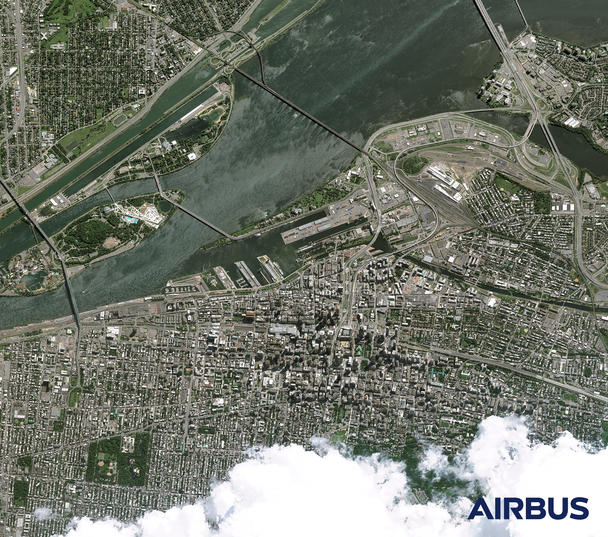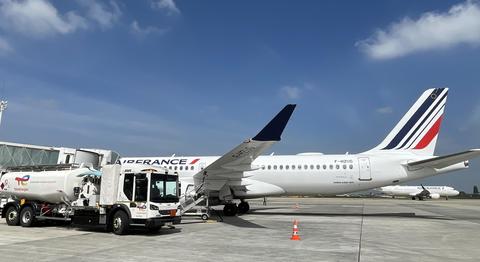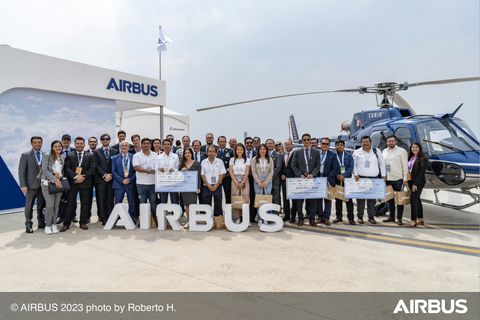The ICAO Assembly: A key opportunity to drive change

The ICAO Assembly aims to create alignment across key issues for the aviation industry such as decarbonisation and resilience. A range of proposals will be discussed and voted upon in order to drive improvements to safety, security, innovation, environmental protection and sustainability.
Next week marks the start of an important fortnight for the aviation sector. 27 September is the first day of the 41st International Civil Aviation Organization (ICAO) Assembly in Montréal, Canada, a highly significant triennial event which brings together governments and other international organisations to discuss key global industry-wide considerations and ambitions.
ICAO plays a critical role in promoting safety, security and environmental protection in international civil aviation. It develops global policies, global standards and recommended practices, as well as defining ambitious goals such as Long-Term Aspirational Goals (LTAGs).
The commitments that will result from this next Assembly meeting – particularly concerning decarbonisation and other environmental matters – will define the transformation of our industry in the years to come.
ICAO develops policies, global standards and recommended practices, as well as defining ambitious Long-Term Aspirational Goals. The commitments that will result from this meeting – particularly concerning decarbonisation and other environmental matters – will define the transformation of our industry in the years to come.
Setting a plan for recovery and resilience – then making it happen
The world has changed significantly since the last ICAO Assembly took place in 2019, and this is reflected in the challenges that will be front of mind at the meeting.
Unsurprisingly, recovering from the COVID crisis is high on the agenda, with the aim to agree a set of actions that will strengthen resilience across the aviation industry.
However, this recovery will need to be sustainable and there is also a focus on “building back better”. This means actively working towards the decarbonisation of the aviation sector, which will require significant effort and investment. Related to this is the collective and global LTAG to reduce CO2 emissions from international civil aviation to net-zero carbon emissions by 2050. Progress on this goal has been a collaborative effort, with the strong support of industry partners and associations working together with ICAO to cement this LTAG as a true industry priority. We hope to see this gain further traction during the Assembly.
With topics of this magnitude, ambitious targets are not enough. We need industry- and states-wide consensus and then a practical and robust roadmap to achieve our objectives. ICAO’s role is to help create a “level playing field” where adequate solutions and capacity building programmes can be deployed across different regions of the globe.
Why ICAO – and the Assembly – is important for the aviation industry
The 193 member states have voting rights at the Assembly, while industry plays the role of an observer. But that does not mean that we are unable to contribute. Airbus participates in ICAO working groups, panels and around 180 meetings per year via our membership of industry associations like the AeroSpace and Defence Industries Association of Europe (ASD) and the International Coordinating Council of Aerospace Industries Associations (ICCAIA).
It is vital that Airbus, and other key stakeholders, maintain a strong presence in these associations in order to share expertise on and promote key issues such as decarbonisation, adapting to climate change, improving safety, and fostering innovation.
Progress is ongoing on technologies like Sustainable Aviation Fuels (SAF), with all current Airbus aircraft certified to fly 50% SAF. We are working on securing 100% SAF capability by 2030. But there is still a long way to go: globally, less than 1% of operated flights use SAF. In order to roll out this technology more broadly our industry needs an appropriate framework and incentives. This is something that ICAO and its member states will be in a position to discuss and push with, for example, the ICAO Assistance, Capacity-building and Training for Sustainable Aviation Fuels (ICAO ACT-SAF) Platform.
Similarly, hydrogen technology has a clear role to play in our ambition to bring zero-emission commercial aircraft to market by 2035. This too requires potential changes to regulations and certification standards, and also has implications for airports and air traffic management. A global consensus on this will need to be reached.
We will be watching with interest in the coming weeks to see which resolutions pass, and look forward to our continuing engagement with ICAO as the industry moves towards a safer, cleaner and more sustainable future.
Airbus presence at the ICAO Innovation Fair
The ICAO Innovation Fair takes place between 24-26 September. Several speakers from Airbus will be participating in panels during the event:
24 September
- Risks, Resilience, and the Role of Innovation in Sustainable Aviation with Mr. Nicolas Bardou, Product Safety Communication and Crisis response Advisor, Health Onboard Lead at Airbus SAS.
- Urban Air Mobility and the Role of Air Transport with Dr. Vassilis Agouridas, Leader of the UIC2 (Urban Air Mobility Initiative Cities Community) within the EU's Smart Cities Marketplace.
26 September
- Planning for the Future: A Periodic Table of Innovations with Dr. Sandra Bour-Schaeffer, Chief Executive Officer Airbus UpNext.


